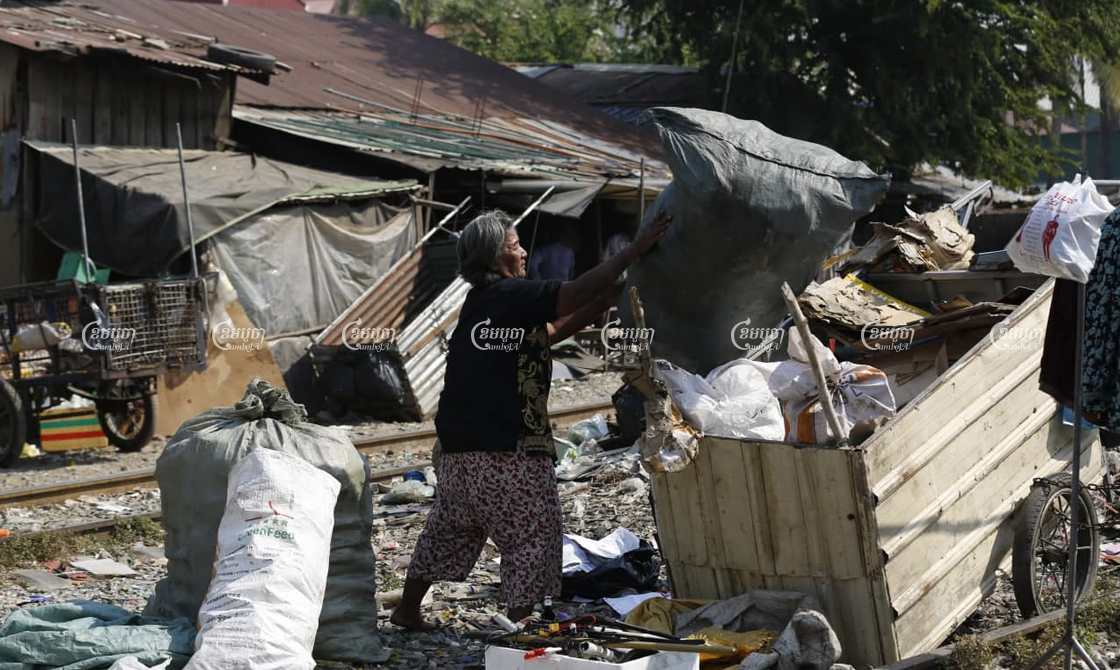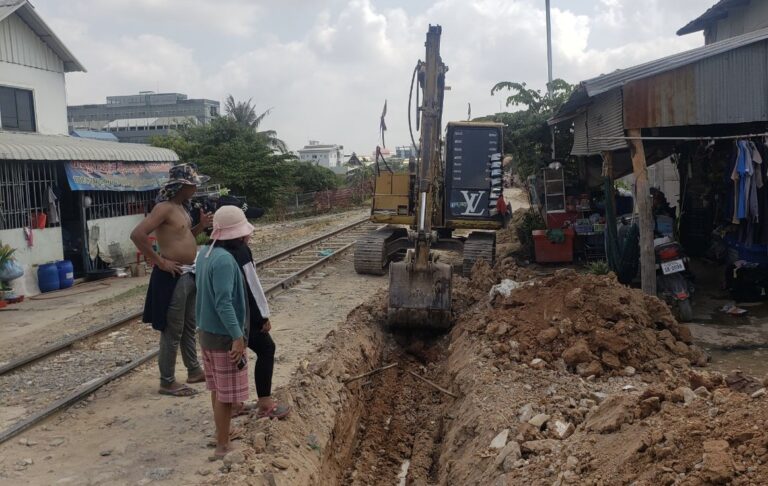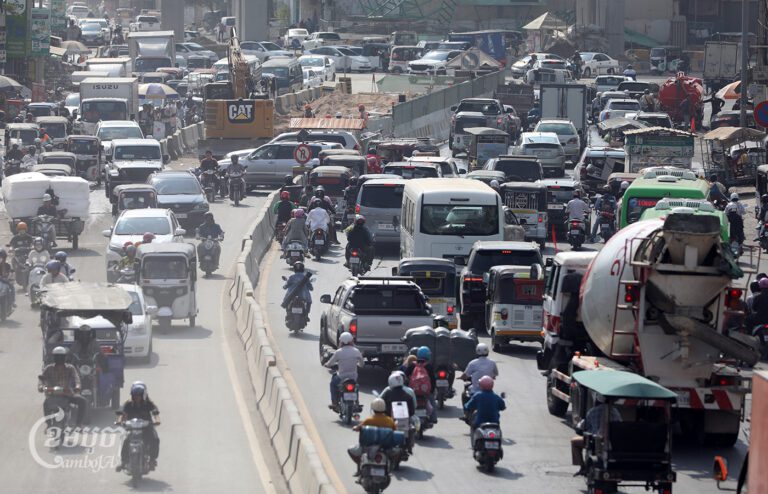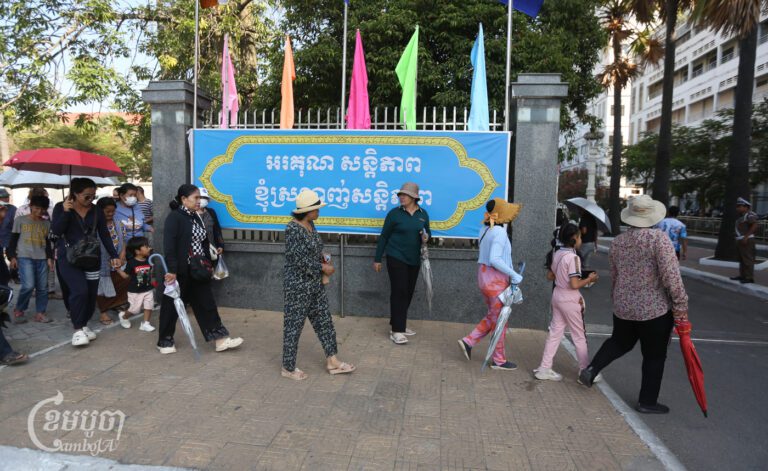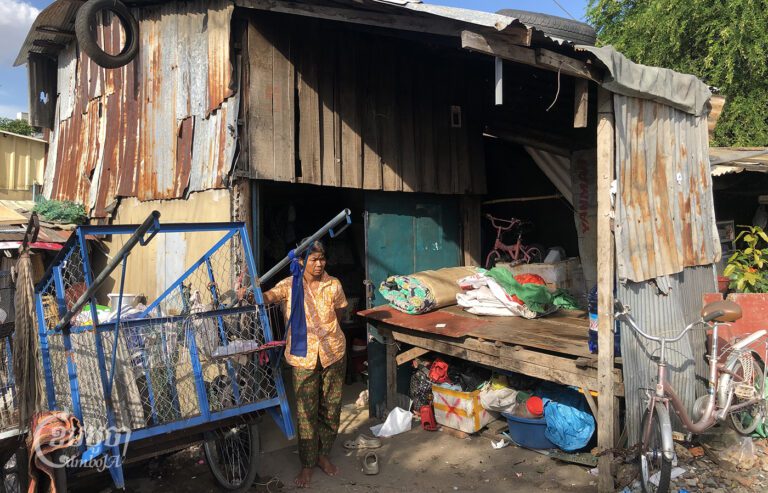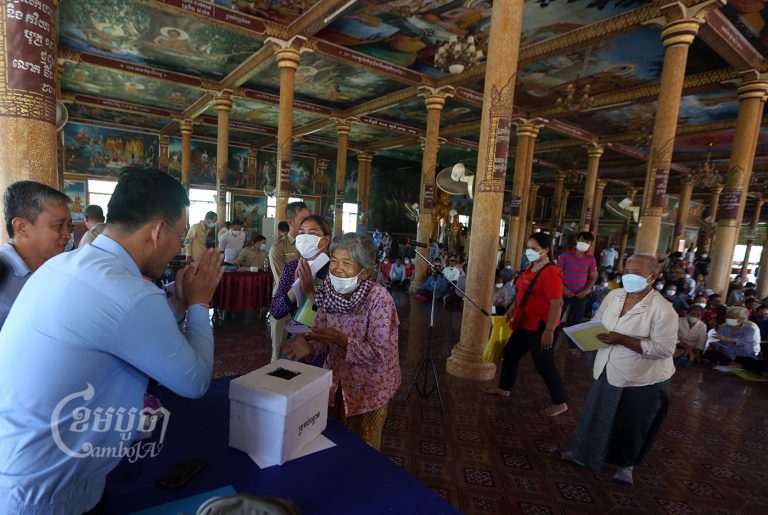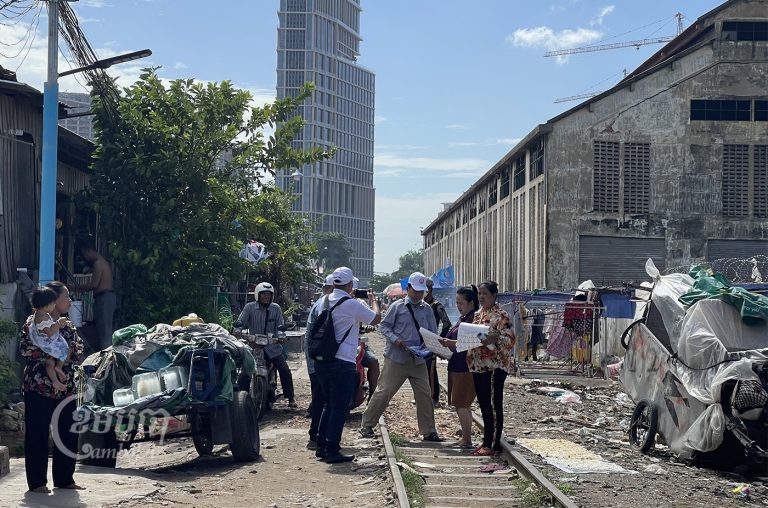Six months after receiving an eviction notice, a community living alongside the railway in Phnom Penh finally met with City Hall officials to make their case for compensation on Wednesday – but they received little assurance, with officials claiming to be waiting on reports from subordinates, they said.
After being threatened with arrest at previous attempts to meet with city officials, representatives of 25 families facing eviction to make way for a new road and drain system in Toul Kok district met with Kaing Leangkry, director of legal affairs and dispute resolution for City Hall.
“He told us that City Hall had not received any report from district authorities and put the blame on district authorities who did not report the issue to the upper level,” said community representative Kov Sarun.
Promises of a meeting next week between families, City Hall and district officials gave the community no certainty, he said, after months of back and forth between residents and officials.
“They show strong commitment to solve the issue, however, we don’t have much hope because we still did not meet the city governor,” he said. “If the next meeting cannot find solution, people will go to Prime Minister Hun Sen.”
Leangkry declined to comment on the claims, referring questions back to City Hall spokesman Meth Measpheakdey, who declined to give details of the process to resolve the dispute.
“They have brought the issue here and the officials will work with them,” he said, declining to elaborate.
Since receiving an eviction notice in August, the residents have been lobbying for appropriate compensation, with offers to relocate outside of Phnom Penh rejected.
They have also been given the opportunity to stay at their current location on reduced plots of land, but claim that some would be left with only a few meters after a new road and drainage system is installed either side of the railway line.
Toul Kok district governor Ek Khundoeun refuted claims made by families, saying that his office had made a full report to City Hall regarding the situation.
“So far, we have not forced them to move their houses,” he said. “We ask them to remain quiet, as we already sent a report to City Hall and are waiting for a solution.”
The families have refused an offer to relocate to Ang Snuol in Kandal province, about 30-km west of Phnom Penh, and instead asked for land in Toul Kok or Russei Keo district.
Khundoeun said this request was now in the hands of the Phnom Penh Governor Khuong Sreng.
The families are just the latest to face forced eviction as a result of Phnom Penh’s ongoing development – this time for a 12-meter concrete road and drainage system either side of the railway.
A letter from the Toul Kok district office dated August 12, 2020, gave them one month to leave.
After negotiations with local authorities stalled, people sent a letter calling for Phnom Penh Governor Khuong Sreng to intervene.
After being granted a meeting with officials on January 14, residents were told by local officials they would be branded as opposition supporters and arrested as they prepared to head to Phnom Penh on the morning of the meeting, they said.
Soeng Senkaruna, a senior investigator at rights group ADHOC, said authorities should have been more proactive in resolving the dispute.
“They should not pass the issue to each other. It shows that they are not cooperating to solve the issue; it shows they don’t pay enough attention; that’s why people always face unsolved problems,” he said.
Authority need to consider the effects of an impoverished community moving before forcing them out of the city, he said.
“People don’t want to go to the new place because it lacks infrastructure; the government needs to make sure that road, water, electricity, healthcare center and school are in place,” he said.


